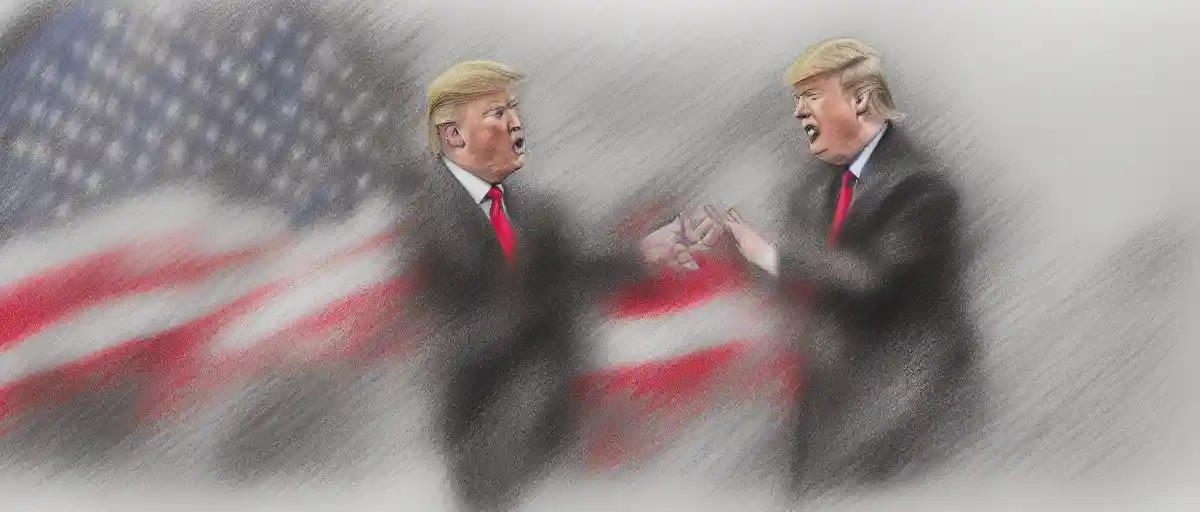You May Also Be Interested In:
Controversial Argument Emerges: Can the 14th Amendment Bar Trump from Holding Public Office?
The potential use of the 14th Amendment to hold former President Donald Trump accountable for his alleged role in inciting the January 6th Capitol riot has sparked intense debate among legal experts and politicians. On one side, proponents argue that Trump’s actions on that fateful day constitute rebellion or insurrection, making him ineligible to hold public office according to Section 3 of the 14th Amendment. However, opponents contend that the Amendment was never intended to apply to such situations and invoking it in such a manner would set a dangerous precedent.
Those in favor of utilizing the 14th Amendment highlight its language, which explicitly states that individuals engaged in rebellion or insurrection against the Constitution shall be disqualified from holding public office. They argue that Trump’s repeated false claims about the election, his efforts to overturn the results, and his speech on January 6th urging his supporters to march to the Capitol constitute a blatant attack on the democratic process. They believe that holding him accountable through the application of the 14th Amendment would send a strong message that such behavior is unacceptable and carries significant consequences.
However, critics argue that the 14th Amendment was primarily designed to address former Confederates during the Reconstruction era and was not intended to be weaponized against political opponents. They caution that using the Amendment in this context would risk politicizing a constitutional provision and potentially violating Trump’s rights to due process. They also argue that the definition of rebellion or insurrection is open to interpretation and applying it to Trump’s actions could set a dangerous precedent that could be exploited in the future to target political adversaries.
In this debate surrounding the use of the 14th Amendment to hold Trump accountable, it becomes apparent that the interpretation of the Amendment is crucial. While some argue for a strict reading of the Amendment’s language, it is important to consider its historical context and original intent. Striking the right balance between deterring future attempts to undermine democracy and safeguarding constitutional rights is of utmost significance. Ultimately, the decision rests with legal experts, lawmakers, and perhaps the courts to determine whether the 14th Amendment can and should be invoked in this particular case.
Here's A Video We Thought You Might Also Like:
Author Profile

- I'm a travel writer with an insatiable wanderlust, and I also enjoy uncovering the political nuances of the places I visit. Through my writing, I aim to showcase how travel can broaden our understanding of different political systems and cultures.
Latest entries
 Breaking News2023.12.17BREAKING Senate Minority Leader Cancels Holiday Recess, Sparks Debate on Key Issues
Breaking News2023.12.17BREAKING Senate Minority Leader Cancels Holiday Recess, Sparks Debate on Key Issues Breaking News2023.12.15Dismaying Allegations DOJ Funding Linked to George Soros’s Influence on Left-Wing Prosecutors
Breaking News2023.12.15Dismaying Allegations DOJ Funding Linked to George Soros’s Influence on Left-Wing Prosecutors Breaking News2023.12.12Explosive Debate Senator Ron Johnson Defends Impeachment Inquiry Vote, Sparks Controversy
Breaking News2023.12.12Explosive Debate Senator Ron Johnson Defends Impeachment Inquiry Vote, Sparks Controversy Breaking News2023.12.12Optimistic CEO Believes Republicans Can Win 2024 Election with Clever Strategy
Breaking News2023.12.12Optimistic CEO Believes Republicans Can Win 2024 Election with Clever Strategy






